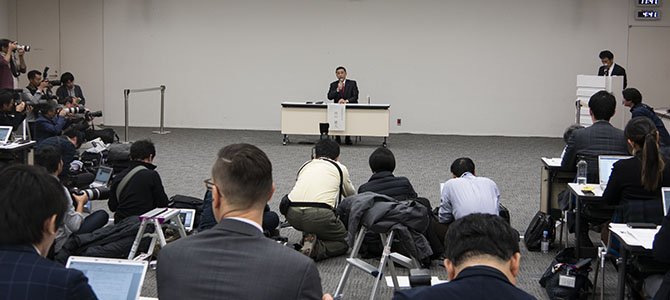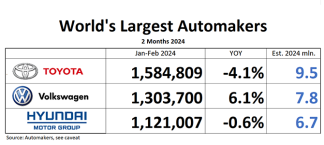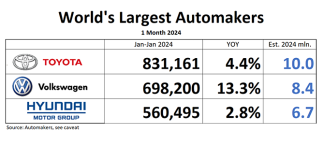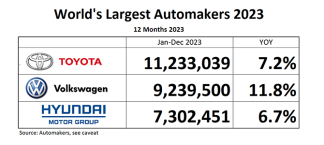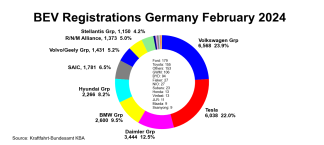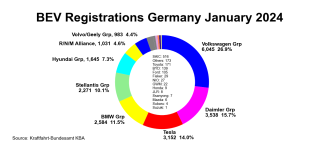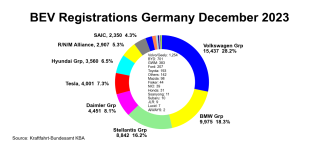The Ghosn affair more and more resembles the situation of an unhappy couple, where after years of arguments, one takes the initiative, calls the police, has the other one arrested for domestic violence. Now in total possession of the house and a restraining order, he or she files for divorce, and it’s all-out war, the beginning of a long drama with no happy ending, but many twists. Two very surprising ones are at the end of this story: Renault could fire Nissan’s top, and take over. Or Nissan could buy into Renault to get free.
Today, minutes before 5pm, Nissan called a press conference for 7:30 pm at its headquarters by the Yokohama waterfront. A meeting of the company’s board of directors was scheduled for today, and the tone of the announcement (live streaming!) raised expectations that the company would name its new chairman. The post became vacant, because Nissan’s Chairman Carlos Ghosn, along with another board member Greg Kelly were thrown into a Tokyo jail on suspicions of “grave misconduct.” Just two days after the arrest, Nissan’s board defenestrated Ghosn as Chairman, and the empty spot at the head of the table needed to be filled, because, horror vacui . To raise the anticipation, we were told that the start of the presser could be a bit late, in case the BOD hadn’t finished its deliberations.
On the dot at 7:30, a lone Hiroto Saikawa, CEO of Nissan, and now without oversight, strutted to the small table at the end of the big 8th floor hall, and announced that Nissan would have two new committees, but no new chairman. The first committee would be in charge of what the simultaneous interpreters called “enhanced governance.” We all know about the pleasures of enhanced questioning, and as Saikawa prattled on, saying “serious misconduct” too many times to count, the mind wandered to what gruesome methods of enhanced governance men could conceive.
Thankfully, the English translation of the written release said the committee is all about “improving governance.”
Governance at Nissan sure could need some improvements, and occasionally, one would wish a load of enhanced governance on Nissan. Over the past years, the company careened from one medium-grade scandal to the next. It had to recall millions of perfectly safe cars because some of its quality inspectors lacked the proper pedigree. In July, it turned out that Nissan had joined the lineup of automakers that had fudged their exhaust and emissions data. However, these misdeeds “may not be as threatening as the emission scandal that engulfed Volkswagen AG,” Bloomberg assured us. Just one week ago, it turned out that Nissan still does not have its quality controllers under control, and it was ordered by Japan’s government to recall yet another 150,000 vehicles, for failing yet another set of ridiculous rules.
On top of that, Nissan committed the most severe lapse of governance: It let its sales slide. As of October this year, Nissan’s global output was down nearly 5%, while Alliance partner Renault and Mitsubishi Motors added 6% and 21% to their outputs, respectively. The Alliance and likewise scandal-plagued Volkswagen are in a neck and neck fight for the crown of World’s Largest Automaker, and the Alliance would be an assured winner if Nissan would not be running out of steam.
A probably welcome side effect of Ghosn in jail: He can’t dress down Nissan’s C-suite for loafing, and for putting Ghosn’s lifelong dream of global glory in peril. The enhanced/improved governance committee clearly has its work cut out for them. The board would love to see findings and recommendations by the end of the fiscal year, which runs through March 2019.
Then there is a second committee, a 3 person team of outside directors that will “propose nominations from the board for the position of the chairman,” says Nissan. With only the people on the board to choose from, the work of the committee should be easy, one assumes, and one fails: No chairman was found today, and no one is likely to be found for many months. After swiftly ousting its old chairman, suddenly, Nissan is in way less of a hurry to find a new one. “I am not going to rush them,” said Saikawa. Oh, and by the way , “the recommendations of the governance committee should also be considered” in that search said Saikawa, “and even if it’s not determined by the end of March, that’s O.K.” When in doubt, form a committee, and when utterly confused, make one committee dependent on the other committee.
One look at Nissan’s board says that it could be done in seconds what will take the committee 4 months, or more. Except for Saikawa, and perhaps Nissan’s COO Toshiyuki Shiga as a deeply dark horse, none of the other members have the necessary wherewithal.
There is Keiko Ihara, according to Wikipedia “a former race queen, a model who appears in a swimsuit or other fashionable apparel at race circuits.” Then there is 69-year old Masakazu Toyoda, a former METI bureaucrat who held board positions at Canon and Murata. Board members who could be suspected of Francophile leanings are 72 year old Jean-Baptiste Duzan, a retired Renault controller, and Bernard Rey, likewise a 72-year retired director of Renault’s F1 team. However, both apparently voted to remove Ghosn, as the board decision was unanimous, says the Nikkei.
Renault’s power used to be projected by board members Ghosn and Kelly. Ghosn didn’t even need to talk, he received unanimous votes by rich and expressive body language. Ghosn and Kelly nominally still are on the board, but all they can do is project their power against the bare walls of their cells in a Tokyo lockup. A reporter asked how the incarcerated directors can play a role in the decision-making, and Saikawa answered they can’t, “because they currently are incapacitated.”
After much beating around the bush, and more pronouncements of “serious misconduct,” it finally fell to Automotive News’ Tokyo reporter Hans Greimel to say what no-one dared to ask Saikawa: “Are you taking yourself out of consideration as the next chairman, because of the concentration of power with you being the chairman and CEO?” Remember, it was Saikawa who after Ghosn’s arrest complained about too much concentration of power.
Saikawa first toyed with a diplomatic answer, said that he wouldn’t “hastily jump to a conclusion.” But seconds later, he found the idea charming, and said that if asked, he’d gladly take the job. “I am totally open to a recommendation,” Saikawa said.
As the saying goes, there are no winners in a divorce. Already, Nissan and Renault are talking through lawyers, Saikawa said. Claiming an ongoing investigation, Saikawa brushed over a reporter’s remark that operation decapitation may have backfired. A week ago, Tokyo prosecutors followed the irrefutable logic that there are two parties to an agreement, and indicted both Nissan and Ghosn of violating financial laws by underreporting Ghosn’s compensation.
This lends new credence to rumors floating in Tokyo that a supposedly clever plan to get away scot-free using a fairly new Japanese whistleblower law blew up in Nissan’s faces, when a law-and-order faction among Japan’s prosecutors latched on to the matter. Already, people at Nissan privately remark over the second sake that Saikawa is “too much of a globalist.” The times of Nissan being a hallmark of diversity are coming to an end, and what used to be a United Nations of carmaking is turning into yet another Japanese corporation. Already, a huge sign in front of Saikawa’s table was all in kanji, it probably said his name, but I wouldn’t know.
Also sidestepped was a question about Renault reportedly requesting a full Nissan shareholder meeting, which could put down the Yokohama rebellion by force, albeit at the price of even more bad blood, not to speak of Ghosn’s fate. Renault holds 43.4% of Nissan, whereas Nissan only holds 15% non-voting shares of Renault. Nissan shares are becoming cheaper by the day, one could be had for $8.43 before today’s announcement. Most of the balance of Nissan’s shares is in the hands of banks and brokerages, and a sure majority could be bought for less than the $2.34 bln it would cost to bring-up Renault’s shares to 50%.
Then there is an interesting stack of weaponized shareholder agreements, known only to deep insiders. For instance, Renault could fire Saikawa immediately. The shareholder agreement is said to stipulate that Renault can name the Chief Executive Officer, the Chief Financial Officer, and the Chief Planning Officer.
A well-informed insider agrees that the posturing and mudslinging reminds of the wild accusations that go with divorce proceedings. According to him, it now depends on who makes the next move,
“Renault could place the three executive directors it is entitled to, take control of the board, and merge Nissan into Renault,” he said. “Or Nissan could buy 10% of Renault, and dissolve the relationship.”
“What????”
“I think that shareholder agreement says that if Nissan holds 25% of Renault, Renault’s voting rights in Nissan would be nullified.”
Renault’s shares also don’t look too good. Stay tuned.
